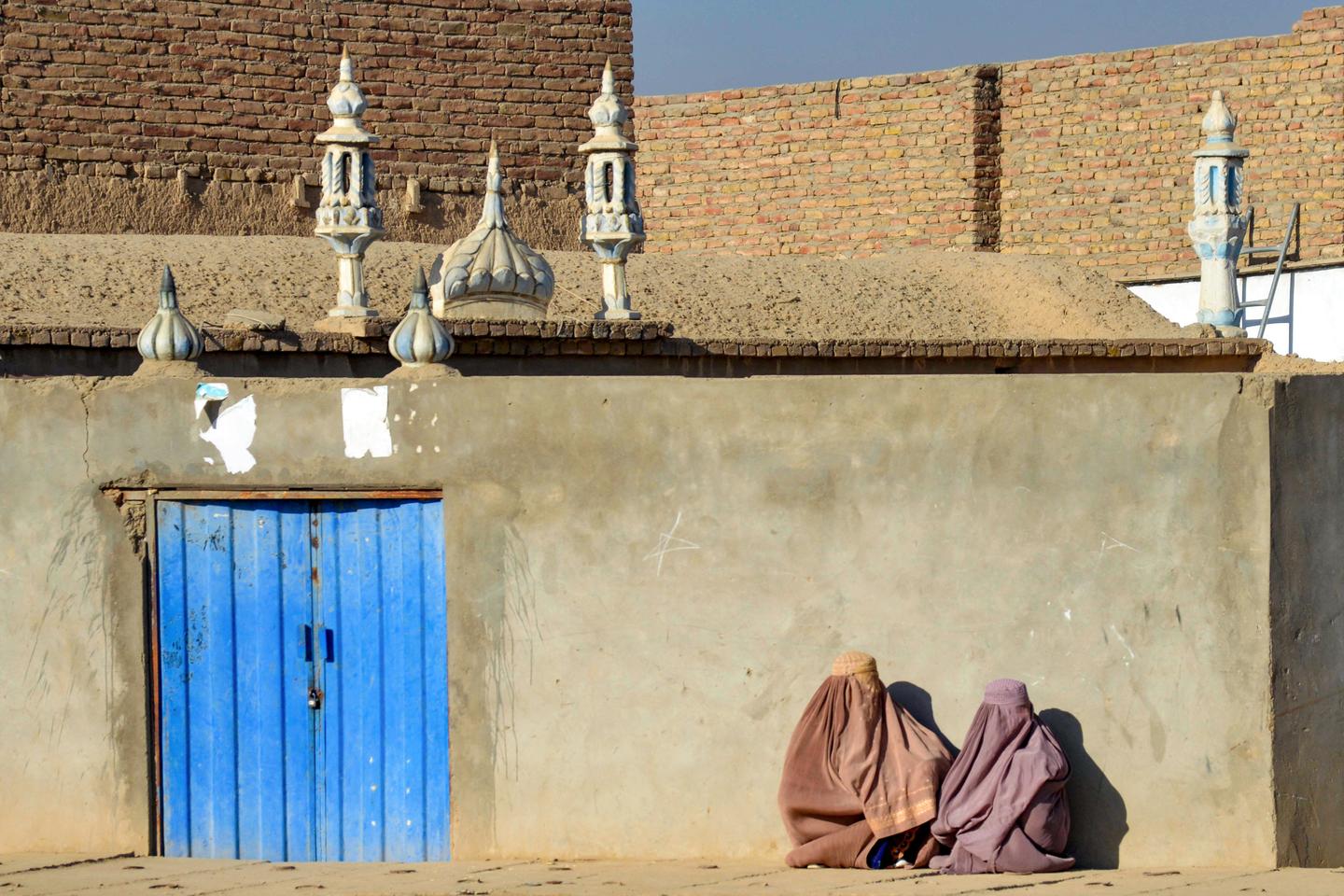


The imprisonment of women continues in Afghanistan – with no end in sight. The Taliban regime's latest decision, announced on December 28, now aims to deprive residential buildings that overlook public spaces of windows. It is no longer enough for them that women be cloistered in their apartments most of the time. Now, their invisibilization has been deemed essential. The sight of "women working in kitchens, courtyards or collecting water from wells can lead to obscene acts," the regime stated in a press release.
Since taking back power in 2021, following an agreement reached with Donald Trump's administration the year before, the Taliban have been steadily stepping up their assaults on women's fundamental rights. Women have been progressively deprived of their right to education, and then gradually driven out of the job market.
In August, in the name of a "morality" that the men in power in Kabul are, clearly, the only ones to understand, a law accentuated women's erasure from public spaces to the point of absurdity. The law includes a ban on women singing or reading aloud. In October, the minister for the propagation of virtue and the prevention of vice went even further, forbidding women from reciting the Quran in the presence of other women, as if group prayer might constitute a threat.
This mad escalation in the misuse of religion goes against the tide of the history of women's emancipation and their progress toward equality. It should not solely be denounced by human rights organizations or Western governments, whose credibility has now been severely undermined through compromises between the values they claim to defend and their own interests.
Short-sighted
Not having been recognized by any country since they took back power, the Taliban seem to believe that time is on their side, and that at least two issues – security and the alarmingly deteriorated state of their country, which makes international aid imperative – can only foster a form of normalization.
The progressive closure of Afghanistan's embassies abroad, which had once been occupied by diplomats appointed by the country's previous authorities, serves as a sign of this; as does the regrettable reopening of a Saudi diplomatic mission in Kabul, on December 22. The kingdom had been one of only three countries that recognized the first Taliban regime, which reigned from 1996 to 2001, along with the United Arab Emirates and Pakistan.
Subordinating one's principles to realpolitik is, however, short-sighted. The fate of Afghanistan is at stake in this stubborn war against women. It is hard to see how the country can extricate itself from the underdevelopment in which it languishes, which generates instability, by subjecting half of its population to genuine gender-based apartheid, a concept that some have been pushing to have designated as a crime against humanity.
In June, the United Nations had accepted the Taliban's diktats by opening up talks, in Doha, Qatar – talks from which representatives of Afghan civil society groups, including women's rights movements, had been excluded. The relentless pursuit of the confinement of women that has since followed has proven that the talks were nothing but an impasse.
